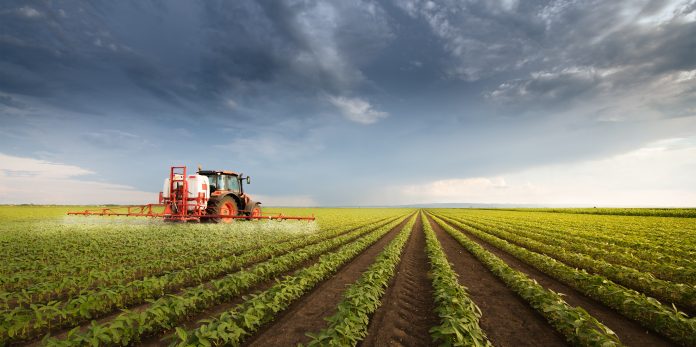Open Access Government highlights the European Commission’s policy priorities for food, including the need to reduce greenhouse gas emissions and improve plant health protection
Stella Kyriakides, European Commissioner for Health and Food Safety at the European Commission from 2019 to 2024, responsibilities include enforcing food safety regulations and maintaining animal and plant health standards.
The European Commissioner for Health and Food Safety has various responsibilities, one of which is to supervise a group of individuals accountable for executing the new ‘Farm to Fork’ plan for sustainable food. This strategy aims to cover all phases of the food chain, beginning from the farm to the fork. (1)
Additionally, in the Directorate-General for Health and Food Safety (DG SANTE), Claire Bury holds the position of Deputy Director-General. (2)
DG SANTE is responsible for the European Union’s (EU) health and food policy and ensures the implementation of relevant legislation. Its goal is to improve the health and safety of Europe’s citizens by monitoring the safety and sustainability of their food.
“Once the EU has adopted laws and policies on food safety and public health, it is up to national, regional and local governments to apply those laws. They have to ensure that authorities in charge, companies, manufacturers and food producers stick to the rules. Part of our job is to check that this is really happening,” the DG SANTE go on to explain. (3)
Greenhouse gas emissions in the food system
Did you know that one-third of greenhouse gas emissions are caused by our food system? Commissioner Kyriakides shared this during the Coolfood summit’s “The Business of Taking a Bite Out of City Emissions” prerecorded message. The Summit emphasizes the need for collective action towards a sustainable future on earth.
According to Commissioner Kyriakides, we are wasting valuable resources by producing food that goes to waste. Meanwhile, millions of people in Europe are unable to afford a nutritious meal.
“Fighting food waste is a triple win: it saves food for human consumption and contributes to food security. It helps companies and consumers to save money, and it lowers the impact on our environment,” Commissioner Kyriakides explained.
That is why a proposal was made to set the first legally binding target for reducing food waste across the EU.
Secondly, a healthy and sustainable diet is the foundation of a healthy lifestyle. A ‘healthy’ diet should be beneficial to both people and the planet, but in many places, the levels of sugar, salt and fat in food are higher than recommended. Commissioner Kyriakides suggests adding more plant-based foods to our diets as a possible solution.”
Commissioner Kyriakides emphasised the need for Member States to work together to find common solutions to challenges such as food wastage and security. States are mainly responsible for school education, nutrition, marketing and promotion, and taxation.
“We need to urgently transform the way we produce, distribute, and consume food. And we need to work closely with multiple stakeholders to deliver real change,” Commissioner Kyriakides urged the audience, stressing that the Summit is a crucial step on that journey. (4)
Protecting EU plant health more effectively
The Commission expressed its approval of the political agreement that was reached in March 2024 between the European Parliament and the Council of the EU regarding the new plant health regulations that the Commission proposed. These changes will play a vital part in ensuring more effective plant health management in the EU, which is essential for the successful and sustainable production of horticulture and agriculture. The modifications include but are not limited to, increased phytosanitary guarantees and a more straightforward procedure for temporary exemptions from import bans.
Commissioner Kyriakides said: “Plant diseases can have a huge impact on our harvests, causing terrible losses for farmers and disrupting our food chain. Recent experiences in fighting the Xylella outbreaks are telling.”
The March 2024 Agreement is another crucial step to strengthen the EU’s defences against new plant-harmful organisms entering and circulating in the EU.
“By doing so, we’re ensuring better protection of our forests and landscapes as well as of our farmers’ livelihoods, and the stability of our food supply,” Commissioner Kyriakides added. (5)
Did you know that the EU has regulations in place to protect the health of their fruits, crops, vegetables, flowers, forests, and ornamentals? These regulations aim to prevent the introduction or spread of harmful organisms (known as quarantine pests) into the EU. (6)
Closing thoughts on EU food policy
Commissioner Kyriakides highlighted that gastronomic traditions are an essential aspect of European life. This statement was made during a brief discussion on food safety and new foods. The European Commission has yet to receive any requests to permit lab-grown meat to be accepted as a novel food.
However, Horizon Europe supports R&D projects to establish the evidence base for cell-based food. The Commission’s primary role is to ensure the safety of food products, including novel foods.
Commissioner Kyriakides stressed the need for clear information to empower consumers to make their own choices regarding what they eat. (7)
References
1. https://commissioners.ec.europa.eu/stella-kyriakides_en#responsibilities
2. https://commission.europa.eu/persons/claire-bury_en
4. https://ec.europa.eu/commission/presscorner/detail/en/speech_24_285
5. https://ec.europa.eu/commission/presscorner/detail/en/statement_24_1336
6. https://food.ec.europa.eu/plants/plant-health-and-biosecurity_en
7. https://ec.europa.eu/commission/presscorner/detail/en/speech_24_384











